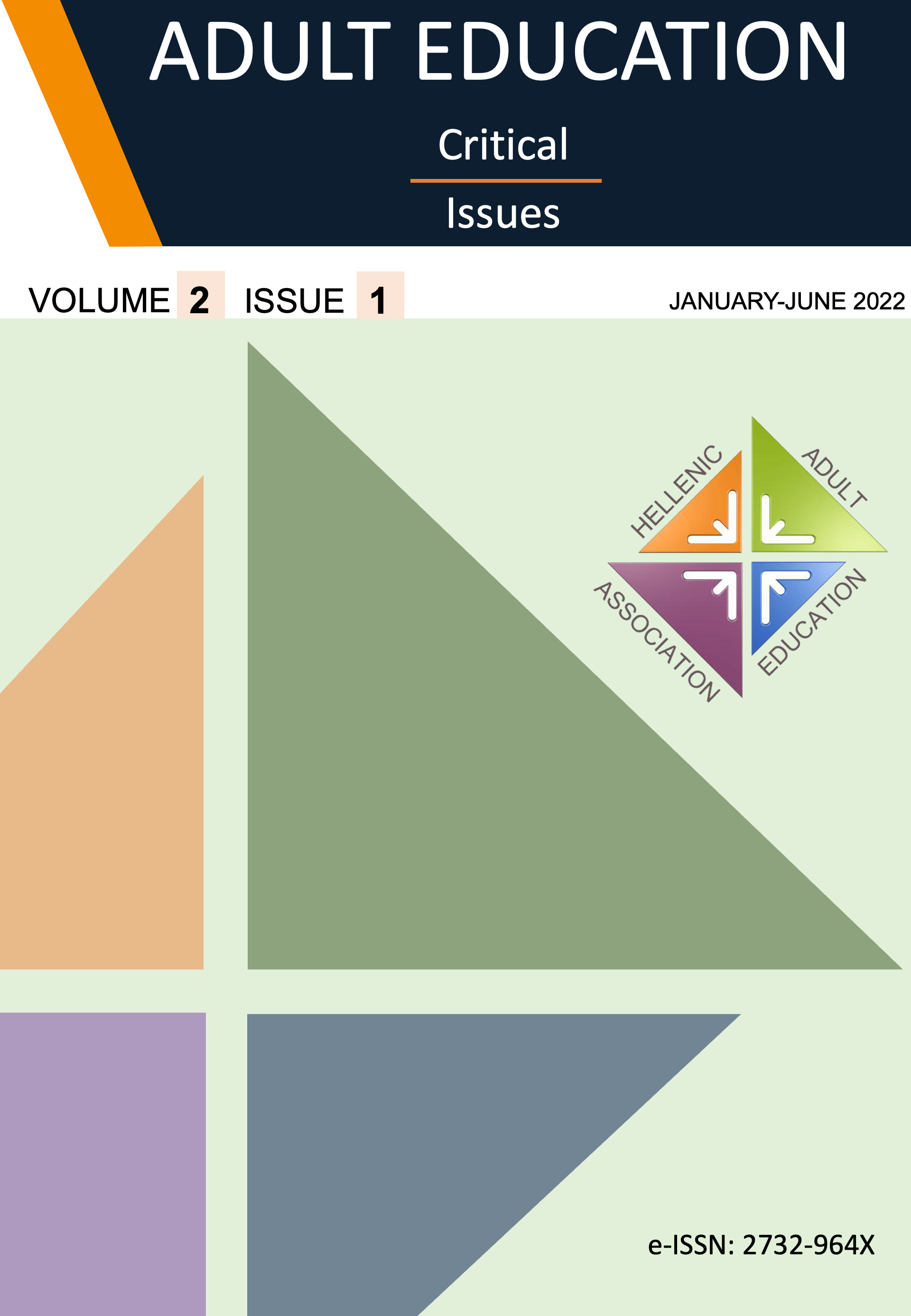In search of a model of mentoring adult educators
Résumé
Since the Treaty of Lisbon in 2000, there has been a growing interest in the European area concerning mentoring in adult education, which, however, focuses on adult learners and is linked to their participation in educational programs as well as their inclusion in the labor market (Raschauer & Resch, 2016). This article focuses on adult educators and refers to research aimed at exploring adult educators' views on mentoring as a tool to support their teaching work. The results showed that adult educators desire to mentor and describe a framework that incorporates the concepts of teamwork and reflection. On this basis, a group, reflective model of mentoring is proposed which aims to the inspiration, development, empowerment, and action of adult educators.
Article Details
- Comment citer
-
Koutsoukos, M. (2022). In search of a model of mentoring adult educators. Adult Education Critical Issues, 2(1), 86–111. https://doi.org/10.12681/aeci.30861
- Rubrique
- Articles

Ce travail est disponible sous la licence Creative Commons Attribution 4.0 International .
Authors who publish with this journal agree to the following terms:
- Authors retain copyright and grant the journal right of first publication with the work simultaneously licensed under a Creative Commons Attribution License that allows others to share the work with an acknowledgement of the work's authorship and initial publication in this journal.
- Authors are able to enter into separate, additional contractual arrangements for the non-exclusive distribution of the journal's published version of the work (e.g., post it to an institutional repository or publish it in a book), with an acknowledgement of its initial publication in this journal.
- Authors are permitted and encouraged to post their work online (e.g., in institutional repositories or on their website) prior to and during the submission process, as it can lead to productive exchanges, as well as earlier and greater citation of published work (See The Effect of Open Access).



